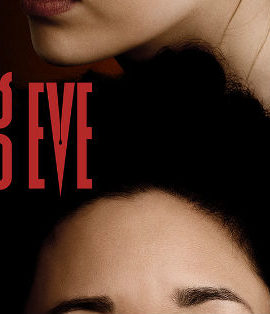TV Reviews

Late in the premiere episode of the BBC drama Killing Eve, there’s a scene that really sets the stage. Security agent Eve Polastri (Sandra Oh) stands at a hospital bathroom sink as an assassin named Villanelle (Jodie Comer) walks in. Neither of them knows the occupation of the other but they engage in a brief conversation. The assassin is confident and abrupt, advising the agent to let her hair down.
It’s better to be free to be yourself, she seems to suggest. The agent doesn’t seem to believe her but begrudgingly lets her hair down. It’s only then that she begins to discover the person she really is.
The sequence sets up a inevitable cat and mouse game between the duo that the show is built around. Polastri is an intelligent but undervalued MI-5 officer. She speaks up for herself hesitantly, never wanting to push the bureaucratic limits too far. When she starts to investigate a mysterious murder outside of her purview, she’s terminated from her position. Because of her tenacity though, she’s recruited by MI-6 to help investigate a potential female serial killer.
That sets Eve up on a path towards Villanelle (Comer), the mysterious killer who avoids detection despite the casualties in her wake. Villanelle is everything Polastri isn’t. She’s confident. She can sneak into situations undetected (while Polastri can’t attend a meeting without chewing too loudly). And she doesn’t hesitate.
The program smartly splits its time between the two women, never settling for one perspective.
Sandra Oh, who previously played the confident Dr. Christina Yang on Grey’s Anatomy, brings a great flexibility to her character. Eve starts out the show aiding a fellow MI-5 agent but longs to have her own authority. But when she’s given a chance to prove herself to a determined MI-6 agent (Fiona Shaw), she can’t seem to make her case. Eve is trying to be the person she’s secretly longed to be (she’s kept a private file on female serial killers) but can’t overcome her own insecurities.
On the other hand, Villanelle is excitedly vibrant. She can look around a room, understands the people surrounding her and then finds their weaknesses.
When the show’s location changes (as happens when the assassin is on the move), the city names are displayed in big colorful letters, a change of pace from the show’s quieter mentality. This is a show that focuses on small, knowing moments that truly establish the characters. From a scene in an ice cream parlor showcasing Villanelle’s ability to adapt to a scene featuring Polastri talking to her husband, the program builds its characters first and foremost setting the stage for the upcoming battle between the two featured characters.
While the show is introducing viewers to this unique world, it’s also methodically changing some of the character dynamics really putting its players in new roles. Polastri, for instance, starts the program assisting another officer but later becomes the lead agent looking into the serial killer (her relationship with her former supervisor takes a turn when it’s Polastri recruiting him to help, not the other way around). Villanelle, on the other hand, begins a relationship with a man she previously avoided. It seems like she’s changing as well. Of course, not all of these changes are meant to last.
This show, on the other hand, should.
Providing two unique characters and an intriguing game of cat and mouse though, Killing Eve stands out as a wonderfully well-written thriller.
Review by: John Hanlon









